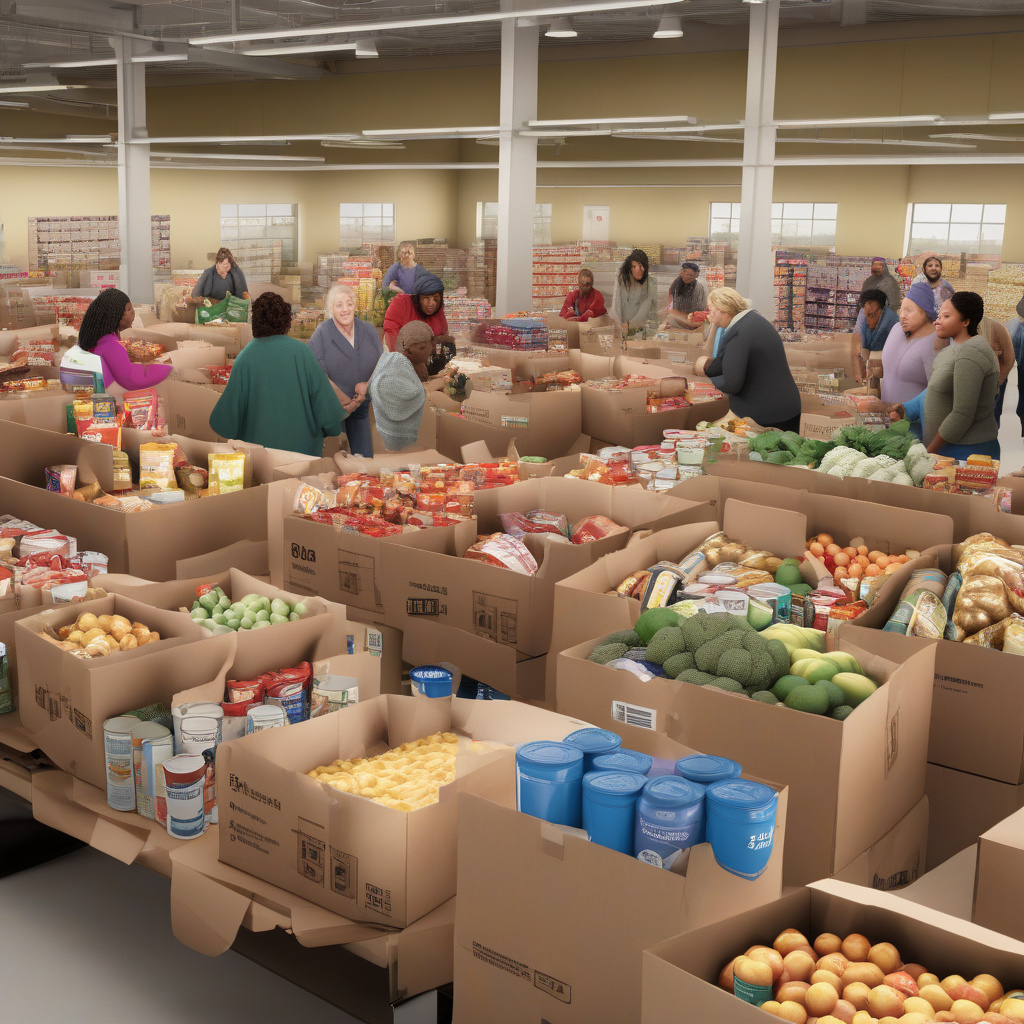Retailers Donate Funds and Food as SNAP Cutoff Deadline Looms
As the Nov. 1 deadline approaches for the cutoff of food aid provided through the Supplemental Nutrition Assistance Program (SNAP), retailers across the United States are stepping up to help those in need. With over 40 million Americans at risk of losing essential food assistance due to the ongoing government shutdown, the urgency for support is palpable. According to Feeding America, approximately 14.3% of households in the U.S. face food insecurity, highlighting the critical role that retailers play in addressing hunger.
The looming SNAP cutoff not only threatens the well-being of millions but also places immense pressure on food banks, which are already operating at full capacity. As charitable organizations brace for an influx of demand, many retailers have announced initiatives aimed at providing immediate relief. These efforts include fundraising campaigns, food donations, and partnerships with local food banks to ensure that vulnerable families have access to nutritious meals.
One notable example of corporate responsibility comes from major grocery chains that have mobilized resources to assist food banks struggling to meet rising needs. Retailers like Kroger and Walmart have pledged substantial monetary donations alongside food contributions. These initiatives not only showcase a commitment to social responsibility but also serve as a reminder of the interconnectedness of retail and community welfare.
Kroger, for instance, has launched a campaign that invites customers to donate at checkout, with proceeds directed to local food banks. This initiative allows shoppers to play an active role in combating hunger while also supporting their communities. The engagement of customers in these efforts has proven to be a powerful tool for raising funds, as it fosters a sense of solidarity among shoppers and retail establishments alike.
Walmart, on the other hand, has made significant contributions of both food and funds to organizations such as Feeding America. Recently, the retailer announced a $5 million donation aimed specifically at food banks in areas most affected by the SNAP cutoff. This proactive approach not only provides immediate assistance but also helps to fortify local food networks in anticipation of increased demand.
The collaboration between retailers and food banks extends beyond monetary contributions. Many retailers are actively working to improve the logistics of food distribution. By leveraging their supply chain capabilities, retailers can ensure that perishable goods reach food banks efficiently, reducing waste while maximizing the availability of fresh produce for those who need it most.
Moreover, some retailers have taken it a step further by organizing food drives and community events. These initiatives not only raise awareness about food insecurity but also foster community engagement. For example, local grocery stores have hosted events where customers can donate non-perishable items, encouraging a culture of giving and mutual support.
The impact of these efforts cannot be overstated. In a time when government assistance is in jeopardy, the role of retailers is more critical than ever. By stepping in to provide support, retailers not only enhance their brands but also contribute to the social fabric of their communities. This symbiotic relationship between retail and charity demonstrates the potential of businesses to effect positive change when they prioritize social responsibility.
As the SNAP cutoff deadline draws near, the collective action of retailers serves as a beacon of hope for millions facing food insecurity. With hunger on the rise, these initiatives highlight the importance of collaboration between businesses and communities. Retailers have the unique opportunity to lead by example, showing that a commitment to social welfare can coexist with business objectives.
In conclusion, as the Nov. 1 cutoff for SNAP looms, retailers are responding with compassion and action. Their efforts to donate funds and food to local food banks illustrate the positive impact that corporate responsibility can have on society. By working together, retailers, customers, and communities can create a network of support that not only addresses immediate needs but also builds resilience against future challenges.
#SNAPcutoff, #foodinsecurity, #retailersgiving, #communitysupport, #corporateresponsibility
